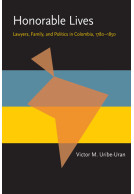Google Books previews are unavailable because you have chosen to turn off third party cookies for enhanced content. Visit our cookies page to review your cookie settings.
Democracy Assistance from the Third Wave (Paperback)
Polish Engagement in Belarus and Ukraine
Imprint: University of Pittsburgh Press
Series: Russian and East European Studies
Pages: 368
ISBN: 9780822962717
Published: 28th February 2014
Script Academic & Professional
Series: Russian and East European Studies
Pages: 368
ISBN: 9780822962717
Published: 28th February 2014
Script Academic & Professional
This book will be reprinted and your order will be released in due course.
You'll be £45.00 closer to your next £10.00 credit when you purchase Democracy Assistance from the Third Wave. What's this?
+£4.99 UK Delivery or free UK delivery if order is over £40
(click here for international delivery rates)
Order within the next 1 hour, 45 minutes to get your order processed the next working day!
Need a currency converter? Check XE.com for live rates
(click here for international delivery rates)
Order within the next 1 hour, 45 minutes to get your order processed the next working day!
Need a currency converter? Check XE.com for live rates
The role of Western NGOs in the transition of postcommunist nations to democracy has been well documented. In this study, Paulina Pospieszna follows a different trajectory, examining the role of a former aid recipient (Poland), newly democratic itself, and its efforts to aid democratic transitions in the neighboring states of Belarus and Ukraine.Belarus is widely regarded as the most authoritarian state in the region, while Ukraine is witnessing a slow, if often troubled, democratic consolidation. Each state presents a different set of challenges to outside agencies. As Pospieszna shows, Poland is uniquely positioned to offer effective counsel on the transition to democracy. With similarities of language and culture, and a shared history, combined with strong civic activism and success within the European Union, Poland’s regional policies have successfully combined its need for security and a motivation to spread democracy as primary concerns. Pospieszna details the founding, internal workings, goals, and methods of Poland’s aid programs. She then compares the relative degrees of success of each in Belarus and Ukraine and documents the work yet to be done.As her theoretical basis, Pospieszna analyzes current thinking on the methods and effectiveness of NGOs in transitions to democracy, particularly U.S.- and European-led aid efforts. She then views the applicability of these methods to the case of Poland and its aid recipients. Overwhelmingly, Pospieszna finds the greatest success in developmental programs targeting civil society—workers, intellectuals, teachers, students, and other NGO actors.Through extensive interviews with government administrators and NGO workers in Poland and the United States, coupled with archival research, Pospieszna assembles an original perspective on the mitigation of the \u2018postcommunist divide’. Her work will serve as a model for students and scholars of states in transition, and it provides an overview of both successful and unsuccessful strategies employed by NGOs in democracy assistance.
Other titles in the series...
Other titles in University of Pittsburgh Press...





















